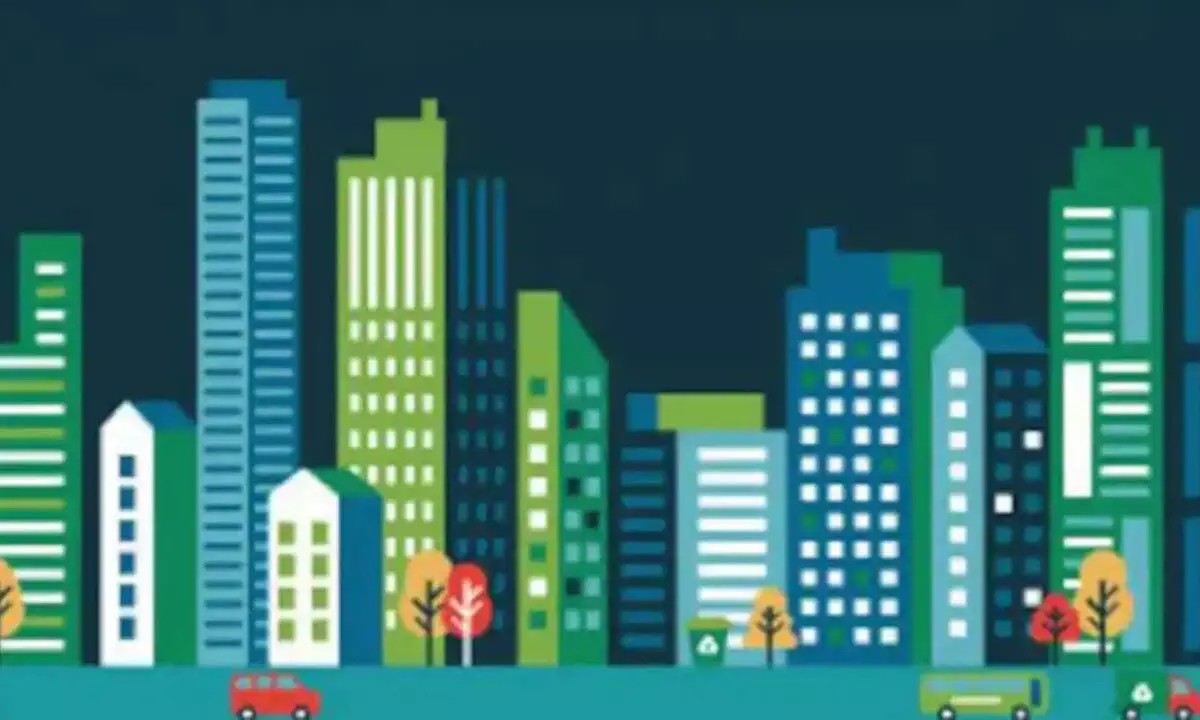Budget's focus on green growth, urban infra, tech, is a good move
The commercial real estate sector would also be benefitted by the incentives provided for startups, fintech companies and enhancing ease of doing business
image for illustrative purpose

Mumbai: The proposed Union Budget 2023-24 largely focuses on green growth, urban infrastructure, and technology.
Contrary to the expectations, there were no direct announcements for the real estate sector. However, the government continued to focus on the affordable housing segment by increasing the capital outlay. The commercial real estate sector would also be benefitted by the incentives provided for startups, fintech companies and enhancing ease of doing business.
The budget has brought in parity in terms of taxation on all kinds of income for REIT/InViTs unitholders. Income received by REIT/InvITs unitholders in the form of 'repayment of debt' to be taxed from April 2024, which was earlier a pass through.
Talking to Bizz Buzz, Boman Irani, President, CREDAI-MCHI, says, "The Union Budget 2023 has emphasized the need to accelerate economic growth, create new job opportunities, and build resilient infrastructure. Even though there was little for the real estate sector, especially our demand to increase the tax incentives on Principle and Interest rate Amounts on Home loans."
However, the Government's aim to boost and accelerate infrastructure development will eventually reflect in the growth and stability of the real estate sector."
Ramesh Nair, Chief Executive Officer India & Managing Director, Market Development, Asia, Colliers, says, "Overall, the budget focuses on driving consumption and capital investment to support growth. This will have a multiplier effect on various sectors such as real estate. At the same time, the government's commitment towards affordable housing continues with a significant jump in PMAY allocation. On the commercial front, the continuous push to startups will give a fillip to activity in commercial office space."
Further, the budget has brought in parity in taxation of incomes for REIT/InvIT unitholders by bringing in 'repayment of debt' under the tax bracket.
PMAY outlay increased by 66 per cent to Rs 79,000 crore
The allocation for Pradhan Mantri Awas Yojana has been increased by 66 per cent to about Rs 79,000 crore. The increase in outlay will bridge the gap between demand and stock in affordable housing. The budget also provides more disposable income in the hands of homebuyers, which would help prospective buyers in the affordable and mid segment. Increased investments will provide opportunities for construction companies and contractors. On the other hand, reducing the surcharge rate from 37 per cent to 25 per centy in the new tax regime is likely to give some thrust to the luxury segment housing.
Innovation in India to rise high through the colossal uplift provided to startups in Budget 2023-24
The budget has announced certain start-up centric incentives such as extension of the date of incorporation of income tax benefits for another year. This can lead to strengthening and deepening of the startup ecosystem and will translate into higher demand for commercial office space. Further, setting up 100 labs for developing applications using 5G services will open a range of opportunities in the technology sector.
Budget continues to focus on infrastructure development
The capital outlay for infrastructure was announced to be at Rs10 lakh crore, at 3.3 per cent of GDP. This is expected to have a multiplier effect across sectors and set a strong footing for a resilient growth. Measures and steps taken to make municipal and state finances more viable, would give them more elbowroom to incur expenditure and make them financially healthy in the long term.
Further, a dedicated amount of Rs 10,000 crore per annum has been allocated through urban infra development fund for tier 2 and tier 3 cities. This will result in creation of quality of urban infrastructure thereby improving quality of life. This will also translate into higher demand for housing and commercial real estate.

